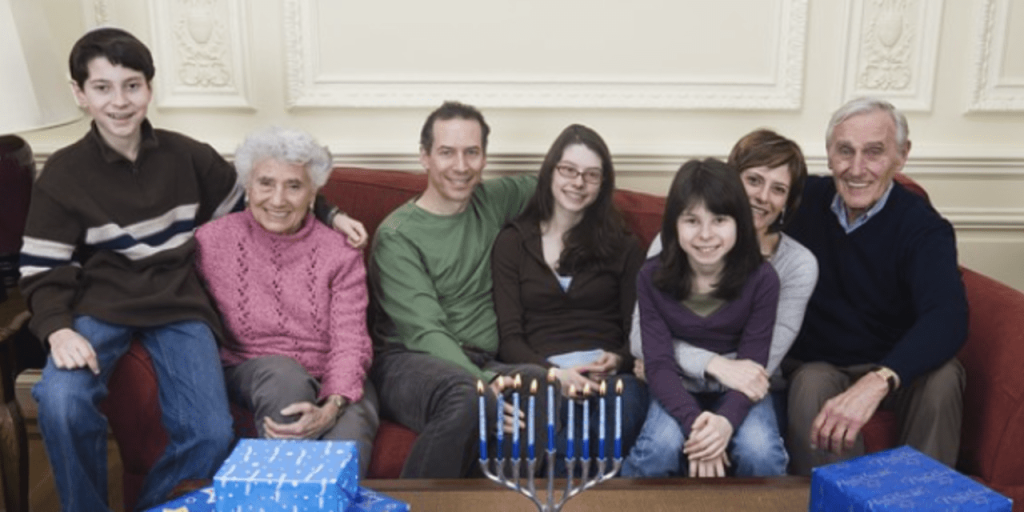The Jewish holiday of Hanukkah may not receive quite the same level of attention as Christmas. But as Adam Sandler pointed out in his hit “Hanukkah Song,” the holiday, which started this year on Thursday evening, does offer children one advantage: “Instead of one day of presents, we have eight crazy nights.”
For Jewish parents, however, Hanukkah’s week-and-a-day duration poses an annual conundrum: how to divvy up the gifts?
Should there be eight nights of equally weighted surprises — or should there be emphasis placed on a particular night for more significant presents? And if it’s the latter, what day counts the most? The first? The last? Or even the fifth? (Yes, there’s a reason why the fifth night could top them all.)
“There really are no rules,” says Rachel Weingarten, an expert on Jewish culture and customs, and author of “Ancient Prayer: Channeling Your Faith 365 Days of the Year.”
Not only is there no agreement, there’s almost a kind of pride in the confusion generated by the holiday. Indeed, many Jews believe the Hanukkah conundrum speaks to the essence of their faith.
“Some might say we’re an overanalyzing people, but I think that’s a positive thing” when it comes to Hanukkah, says Jeremy Cowan, founder of Shmaltz Brewing Company, a craft producer of kosher beer. “It leaves room for your own way to celebrate.”
Of course, the confusion also stems from the fact that Hanukkah, which typically falls near or during Christmas, is not a holiday that comes with a lot of guidelines — at least in a religious sense — short of the lighting of the Hanukkah menorah (or hanukkiah).
“‘There really are no rules’ when it comes to Hanukkah gift-giving”
In fact, Hanukkah is a minor event on the Jewish calendar, especially when compared with the likes of Rosh Hashanah (the New Year) and Passover. And while a tradition of giving children money (“gelt,” in Yiddish) has been a part of Hanukkah for a few centuries, the present-buying mania, to say nothing of the spending on decorations and other holiday items, is a relatively new development — a way for Jewish children not to feel left out during all the Christmas fervor, some argue.
The National Retail Federation, which reports on consumer spending for various holidays, doesn’t track Hanukkah itself. But the NRF does say that overall spending for the shopping season in November and December, a period that incorporates various holidays including Hanukkah, is expected to grow this year between 3% and 4% over 2022, bringing the total to nearly $1 trillion.
For some Jewish families, the best way to approach the holiday is to provide equally weighted gifts — often small items — across each of the eight nights. (There’s many a joke that’s been made about receiving socks on Hanukkah). But for other families, offering a big gift on a particular night is the way to go.
Often, that’s the first evening or the eighth. Those in favor of the first say it’s good to start the holiday on, well, a big note. “If there’s a gift I know they’ve been looking forward to, I do that the first night,” says Menucha Citron Ceder, a craft blogger and New York mother.
Conversely, Bonnie Taylor, a Boston-area mother of two boys, says she’s all about saving something special for the final night. “We work up to it,” she explains of her approach to Hanukkah’s eight-day conundrum.
Of course, there’s nothing that says you can’t have two big nights. In the case of Neal Hoffman, a Jewish dad who created the popular Hanukkah item known as the Mensch on a Bench, that logically equates to the first and last evenings of the holiday. “You kinda want to start and end with a bang,” he says.
Other families may find other nights work well for any major gift giving. In that regard, Kristen Kreider, who heads retail operations at the Weitzman National Museum of Jewish American History in Philadelphia, says the weekend evenings of the holiday often prove important since that’s “when loved ones can congregate.” Kreider adds that when Hanukkah falls well before Christmas — who can forget Thanksgivukkah? — the gift-giving tends to be smaller in general.
But what about a year when Hanukkah intersects with Christmas? Kreider says it can be bigger by virtue of the fact families “have the most flexibility and time off.”
Finally, in some Jewish households, the fifth night of Hanukkah stands as the most symbolic — and the one best suited to gift-giving. That’s because it’s the first evening that the majority of the eight candles on the menorah are lit, explains Rabbi Motti Seligson of Chabad.org, a website devoted to Jewish news and information.
“The night symbolizes the triumph of light over darkness,” says Rabbi Seligson.
Read the full article here
